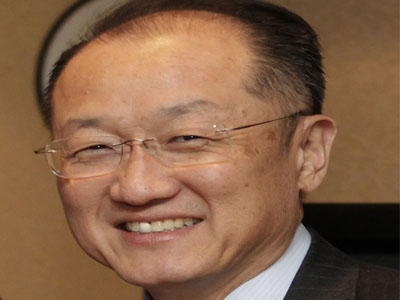
Recent classification of Nigeria as middle income by the World Bank has drawn the ire of some local and international groups.
At the head of the global campaign to reclassify Nigeria as low income is AIDS Healthcare Foundation (AHF) with support from over 500 civil society organizations.
The Nigerian office of AHF in a statement noted that countries are classified as middle income suffers because they receive less foreign aid and pay higher prices for essential medicines.
The group is also worried that countries where people earn as little as $2.86 per day, about as much the price of a recharge card or cup of coffee, are designated by the World Bank as Middle-income countries.
“75% of the world’s poor and majority of the people living with HIV and other diseases reside in the MICs,” the group noted.
AHF Nigeria Country Programme Manager, Dr. Adetayo Towolawi, noted: “ I would also want to use this medium to thank the World Bank at global, regional and country level for granting us audience and acknowledging our concerns. Recent classification of certain countries as Middle-Income-Countries (MICs) has necessitated a global campaign, spearheaded by AHF with support from over 500 organizations and partners.
“While we commend the World Bank’s commitment in eradicating poverty and promote shared prosperity; we believe that for the World Bank to truly accomplish its mission, it must reconsider how it classifies countries along income lines. We would also like to commend the Nigerian government effort to reposition the nation’s economy for the good of all.”
He observed that designations for low, middle and high-Income countries are set by the World Bank in consultation with the government based on the countries’ Gross National Income, an approach he said grossly understates the extent of poverty in the MICs.
“These MICs accounts for over 70% of the world’s poorest people and the majority of the people living with HIV/AIDS reside in the MICs. Middle-Income countries like Nigeria, Kenya and Zambia contribute to these staggering figures,” Towolawi noted.
He added: “If the International poverty line set by the world bank is $1.25 per day, why then are countries with per capita income as little as $2.86 per day considered middle-income countries?
At this juncture, I would also like to urge the Nigerian government through the Minister of finance to cause an active review of Nigeria’s Middle-income classification, taking into cognizance the realities like disease burden and poverty level; and the recent issues around the economy.”
He described the implications of middle-income classifications as enormous, , noting that it has the potential of sabotaging some of the progress the nation has recorded.
His words: “Middle-income countries receive less foreign aid because of their status. For instance, the Global Fund to Fight AIDS, tuberculosis and malaria makes a smaller amount of grant money available to MICs; even though they have the highest burden of the 3 diseases.
“Middle-Income countries have to pay 10 times more for essential medicines and medical commodities compared to Low-income countries. In Nigeria’s HIV/AIDS sector, patients are being charged “User Fee” for routine tests; largely as a result of cut back in donor funds. Swaziland has the highest prevalence of HIV/AIDS in the world, but its upgrading to MIC status has led to an end in Condom support from donors.”
The group called on the call upon the World Bank President to consider a review of how the World Bank groups countries by income level while such designations must factor in disease burdens, unequal pay and quality of life.
It demanded that the lowest limit of the MIC category be set at $3650 of GNI per capita, equivalent to $10 day , as it is currently unrealistic for someone to survive on $1.91 (N382) a day.



